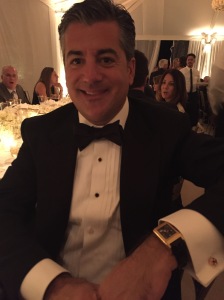
Matthew Gorelik
Matthew Josef Gorelik is a private equity investor who has achieved success in multimillion-dollar hospitality and student housing real estate ventures. Matthew Gorelik applies his expertise as the chairman, founder, and CEO of Township Capital, a Los Angeles-based private equity real estate fund. The firm collaborates with owners, developers, and operators on a global scale to identify new developments and other value-added real estate investment opportunities in America.
Township’s private equity division, known as TPE, employs a set of criteria to guide the investment selection process. These include:
– Real estate deal value of $400,000 to $10 million with a duration of three to five years, and a maximum platform commitment of $20 million.
– Geographic location of metropolitan areas across the United States.
– A wide range of asset classes, which include multifamily, office, retail, industrial, hospitality, and student or senior housing.
– A project investment split of 90 percent limited partners and 10 percent general partners.
– Target returns of 5 percent cash on existing assets and 17 percent on individual projects.
For further detail on Township’s investment criteria, visit http://www.townshipinc.com/private-equity.


You must be logged in to post a comment.